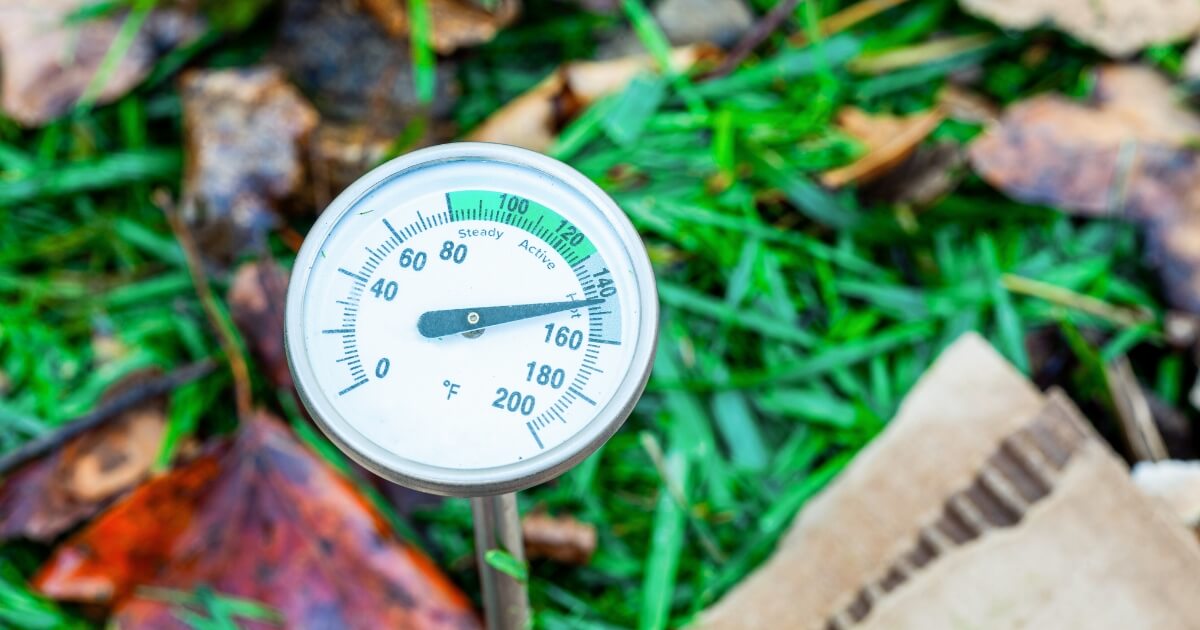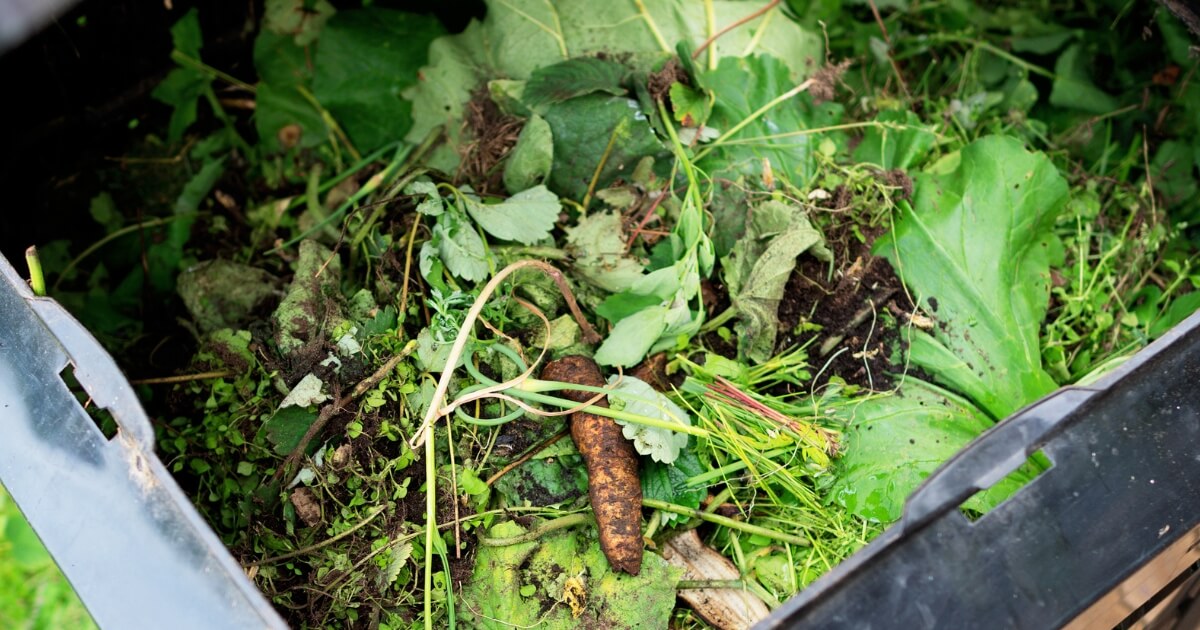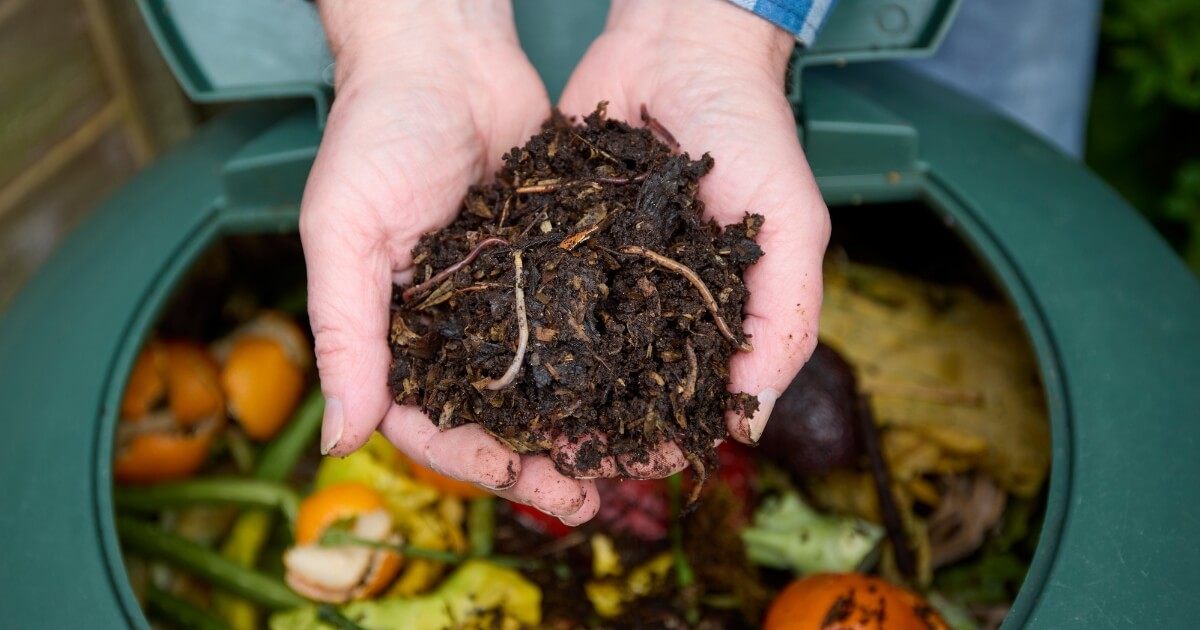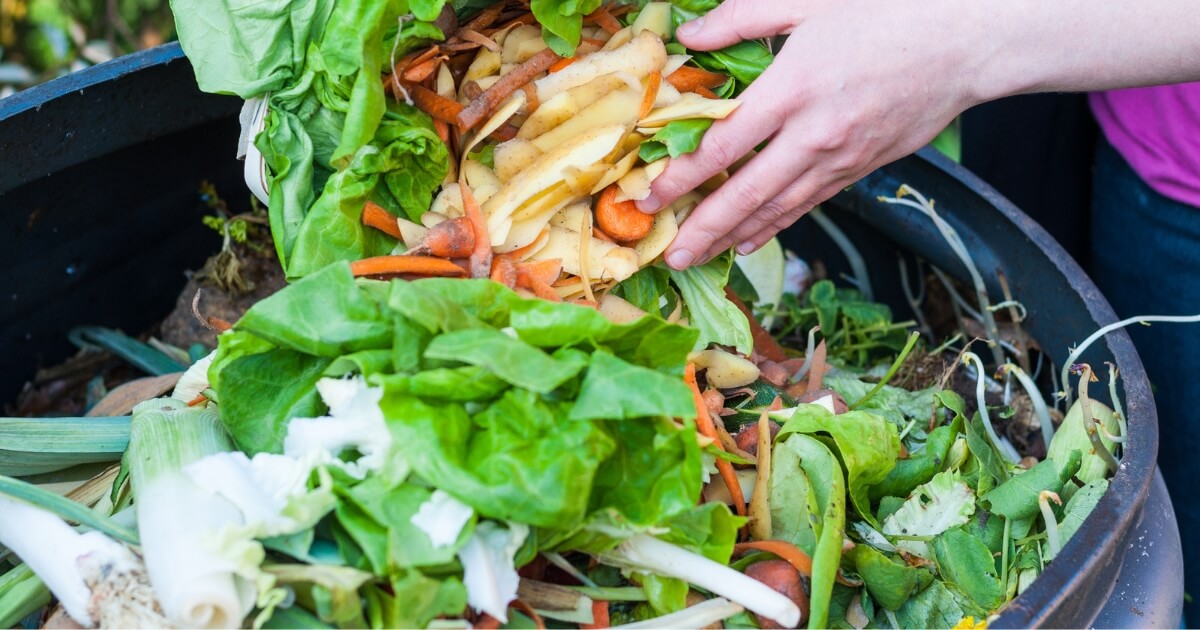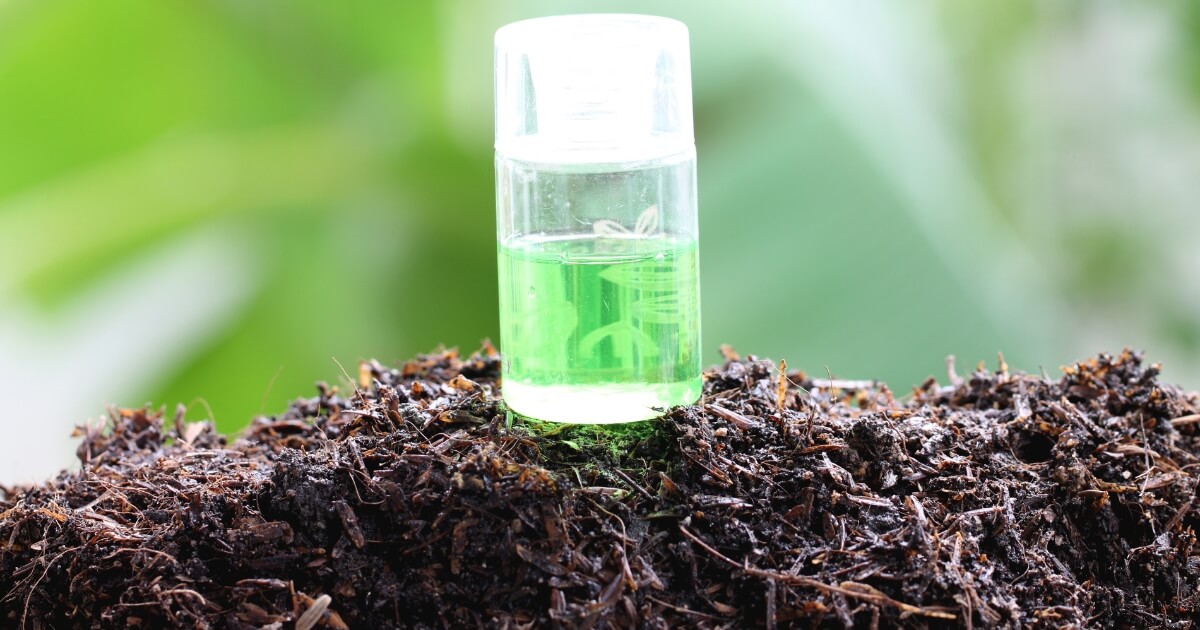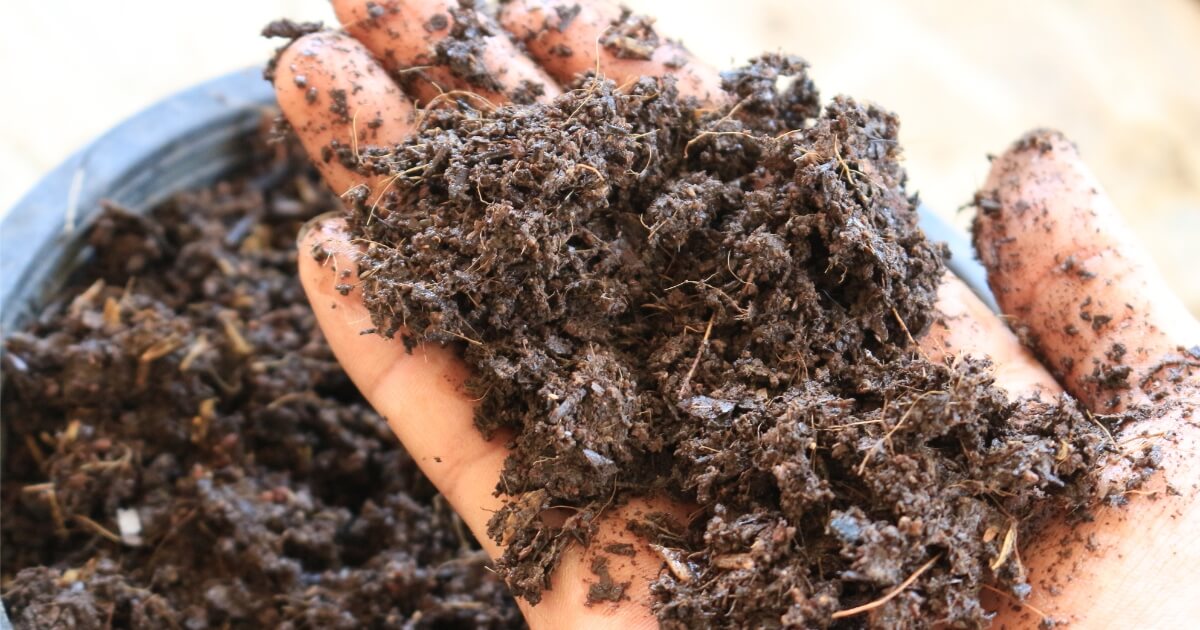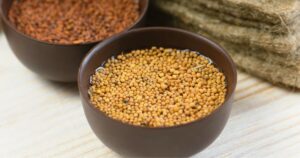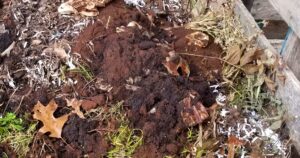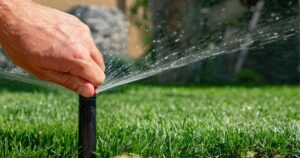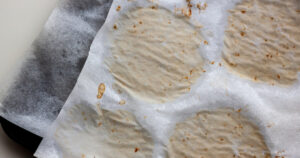Do you want to give vermicomposting a try but are unsure which type of worms you need?
Not just any species of earthworm will work in a compost bin to digest and recycle your kitchen scraps and other household waste. My preferred picks are Red wigglers and European Nightcrawlers.
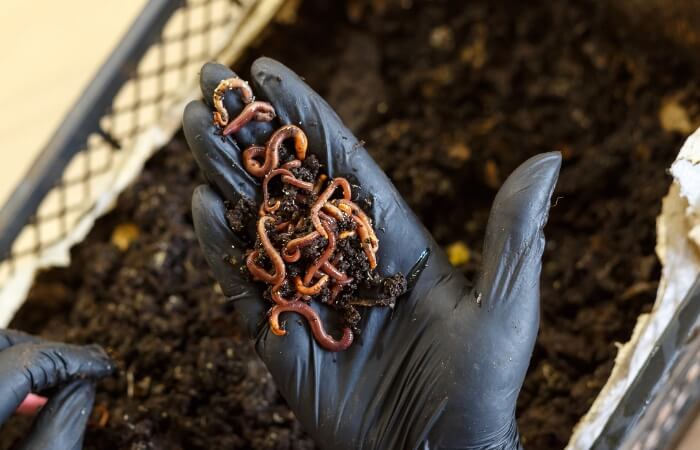
In this guide, I review the two best worms for composting and explain if you really need worms for composting.
I also answer frequently asked questions so you can pick the perfect worms to make your home composting system a huge success!
Best Types Of Worms For Composting
Best Overall
Nature’s Little Recyclers Red Wiggler Earthworms

Reasons To Buy
- Worms are smaller than the nightcrawlers but can process through a lot of food scraps
- The worms are top dwellers, so they feed from the surface of the compost
- Vigorous reproduction means your worm population grows quickly
- Affordable price for those on a budget
Reasons To Avoid
- Many customers found a fewer count of worms in the package, but many are very small and could be missed
- One pack doesn’t supply enough worms to start composting efficiently (order more packs)
The Red Wiggler Earthworms by Nature’s Little Recyclers are some of the best vermicomposting worms because they are always eager to devour through your kitchen scraps.
I like that the worms produce a large number of castings, so it’s easy to enrich your garden soil to grow abundant vegetable crops, flowers, and plants that are lush and healthy. I also appreciate that these worms come from a sustainable growing practice, which is better for the environment.
Red wigglers feed through large amounts of compost daily, and as they reproduce, you can use the extras for nutritious pet food or even fishing.
The only downside to this pack of composting worms is that they ship them when they are babies, so many customers feel unhappy about the need to wait for them to mature.
I give Nature’s Little Recyclers a spot as one of the best worms for composting due to their affordable pricing and reliable quality. This worm pack is best for those who use a small vermicomposter or to buy in quantity for a larger system.
Runner-Up
Uncle Jim’s Worm Farm European Nightcrawlers
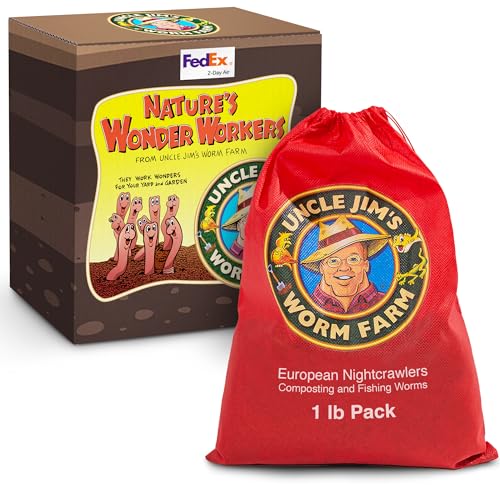
Reasons To Buy
- Larger worms eat more, so you can process more scraps
- One pack holds enough worms to start vermicomposting immediately
- Worms arrive healthy
- Package comes with clear instructions
- Worms provide excellent aeration to help the compost stay in balance
Reasons To Avoid
- Seems a bit costly, but for the worm count it is reasonable
- Worms are small upon arrival and need time to grow to maturity
Uncle Jim’s Worm Farm European Nightcrawlers composting worms are a top choice for vermicomposting because they grow up to eight inches long, eating their way through more kitchen food waste than smaller species of worms.
I appreciate the massive appetite of these worms that devour larger food scraps, leaves, and other items like cardboard quickly. The worms also aerate the soil while they work through the compost, leaving behind rich castings full of valuable nutrients your plants will love.
If you choose to transfer some worms into your garden soil, these mid-range dwellers will help avoid soil compaction as they move within your garden soil to feed.
I really like Uncle Jim’s Worm Farm European Nightcrawlers for composting because the one-pound pack provides a sufficient number of worms to start off a vermicomposting system.
This pack is best for those who don’t want to buy additional worms and have time to let natural reproduction build-up to sufficient numbers to process all of your kitchen scraps.
Do You Really Need Worms For Composting?
No, you don’t need worms for composting, but as the earth’s natural recyclers worms are an efficient, low-maintenance, environmentally-friendly answer to composting at home.
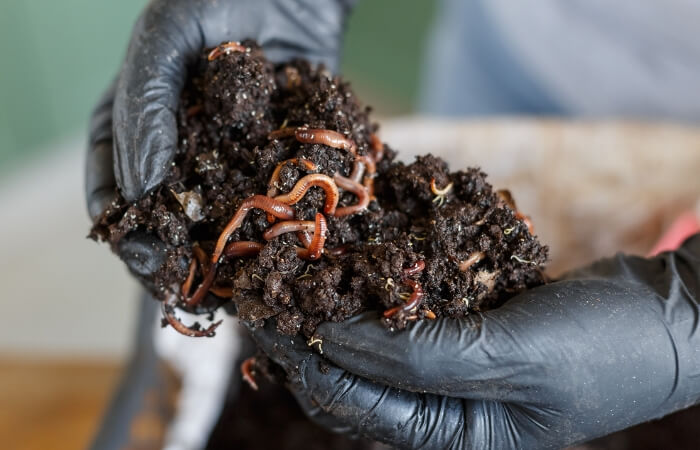
Worms gobble up kitchen scraps and dry bedding material in a matter of days, if not hours, which makes them the fastest way to process compost. If you have more kitchen waste, incorporate more worms into your composting trays to keep up.
The benefits of vermicomposting are:
- Low initial investment
- Little experience necessary
- Great for small areas like apartments or condos
- Little to no odor
- Fast and efficient compost processing
- Less daily maintenance, the worms do the work for you
- Castings improve soil quality and moisture retention
As the worms eat the scraps you place on the top of your composting bin, they pass it through their body during the digestion process and leave behind castings.
Castings are chock full of minerals and nutrients that you can then add to your potted plants, garden, or planter beds around your home.
I use a vermicomposting bin in addition to my traditional compost pile because it produces a more consistent amount of material for me to add to my plants, instead of having to wait months for my outdoor pile to finish.
Things To Watch Out For When Buying Composting Worms
When purchasing and using composting worms, you need to pay attention to these factors:
Shipping
Inquire about shipment policies to ensure your worms will arrive promptly and in good condition.
Expect worms to arrive in a state of hibernation since growers reduce moisture in the soil, so the worms experience less stress during shipment.
Upon arrival, follow the directions to “wake up” the worms and give them time to acclimate to their new surroundings.
Worms should never arrive dead, smelly, or appear light pink or whitish, which all mean they are suffering from poor shipping conditions or come from a low-quality worm farm.
Feeding Schedule
Understand that worms can only process a certain amount of material daily. As a general rule, worms can eat their body weight in scraps per day.
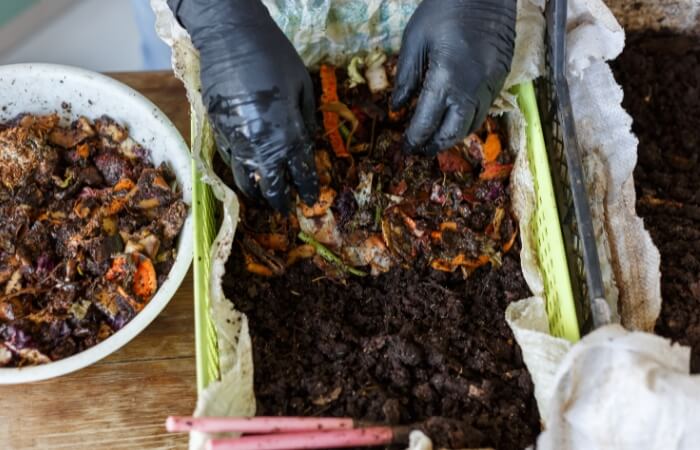
Check out this chart to better understand worm-to-surface-area ratios so you can purchase the correct amount of worms to handle your daily influx of kitchen scraps.
Type Of Food
Before adding material to your worm composter, chop up food scraps, and shred up paper products since it helps the worms break down the food even faster.
The best food scraps for your worms are:
- Non-acidic fruit
- Vegetables
- Coffee grounds and paper filters
- Tea
- Bread and other grains
- Pasta
Along with the above items, you can also toss in moderate amounts of human and pet hair, torn up corrugated cardboard, and newsprint.
Never add these foods to your vermicomposter:
- Meat
- Processed or salty snack foods
- Yogurt, dairy, or cheese products
- Fatty or oily food
Unfortunately, one batch of the wrong food can sicken or even kill off your worm population. If you are ever unsure of a food, introduce a very small portion and see how the worms react before adding a larger amount.
Temperature Range
For worms to live, eat, digest, and reproduce successfully, the compost bin needs to maintain a temperature between 54-82 degrees Fahrenheit.
If it gets cold, the worms will become sluggish and not be able to process much food.
Very low temps can freeze the worms, and temperatures too hot can cook them. Both extremes will kill off the worm population, and you’ll need to buy more worms.
Many worm composters are kept indoors in a controlled climate, but people do place them in garages or on patios, so keep an eye on the temperature to keep your worms active.
Moisture Level Of Compost Bedding
It’s very critical to keep the moisture level inside your worm composter neither too dry or too moist.
When the compost material gets too dry, the worms dry out as well, which inhibits their ability to breathe and tunnel.
The best way to add water is to use a spray bottle to mist the compost surface if it appears dry.
Never pour water into the bin. Too much water at once will soak the bedding material, cause foul odors, and possibly drown the worms.
If you see the bin contents getting too wet, mix in shreds of cardboard or paper to soak up some moisture. Remember that high-water-content food such as watermelon can also increase the moisture inside your worm composter to unsafe levels.
Proper Worm Casting Removal
Sometimes it’s easy to keep adding food to your vermicomposter and forget that you must remove the castings to keep the system functioning properly.
Worm composters that use a layered-tray system are much easier to regulate than one single container since the worms automatically work their way upwards in search of fresh food, and the castings naturally remain in the lower trays.
Once a bottom tray is full, you remove the castings and then move all the current trays down one slot, placing the empty tray in the top slot to start a new layer.
Castings look like soil but have no nutritional value left for the worms, so they may starve to death if you don’t remove them from the castings promptly.
Once a large bin is finished, you’ll need to sift the compost through a screen to separate the worms from the castings before you start the process again.
Worms For Composting FAQs
Are Worms Good For Compost?
Yes, worms are extremely beneficial to any composting system. Worms work to recycle nature’s waste like leaves and plants and provide aeration as they tunnel through the soil. When you incorporate worms into your composting routine, you can let them work the soil as they digest all your food scraps. Worms will not only “turn over” the food scraps into the compost for you but also reduce the chances of smells forming and attracting pests like gnats or flies. The best worms for composting are the Eisenia foetida, known as the red wiggler variety, and Lumbricus rubellus, which is also called a manure worm.
Should I Buy Worms Locally Near Me?
If you have a local seller of composting worms, you can eliminate shipping costs, the time it takes to get your composting system running, and the worry about worms dying in transit. Local worms will most likely be “fresher” since they won’t need to be prepped for shipment, and it may be easier to buy the exact amount you need for your size of worm composter. Just remember that many worms sold for pet food or fish bait are not compatible with a worm composter, so make sure any worms you buy are a red wiggler variety. Checking out local garden centers or garden cooperatives is a great way to locate a source of worms safe for home composting.
How Many Worms Do I Need For Composting?
A great rule of thumb is two pounds of mature worms will be able to process about 1 pound of food scraps each day. You can collect several days’ worth of food scraps and weigh it to get a good idea of how much you need to process in a week. After you know how much food waste you create, you can purchase the correct size worm composter and the appropriate amount of worms to handle it. You can also start with a smaller number of worms and let them reproduce on their own to increase the population within your composter. Composting worms feed in the top couple inches of material, so to process more kitchen waste, you’ll need more surface area in which to spread out the food scraps. A good number is one pound of worms per one square foot of surface area.
How Long Does It Take For Worms To Compost?
Depending on your particular worm composting system, expect to harvest worm castings every two to six months, which completes the worm composting cycle. Worms consume their body weight in food (if available) every 24 hours, but it’s best to use a 2:1 ratio when figuring out how long it will take worms to finish composting your food waste. For example, if you purchase two pounds of mature worms, they should be able to recycle one pound of food scraps and bedding material per day.
In Summary
Composting with worms is a no-brainer if you want to help the environment by recycling your household food and paper waste.
Vermicomposting systems are ideal for both single-family homes and apartments and eliminate much of the hassle that comes with traditional composters. Knowing the right worms to add to your compost is the key to success.
I hope you use this guide to purchase the best worms for your vermicompost system and see how you and your worms can live in perfect harmony!
